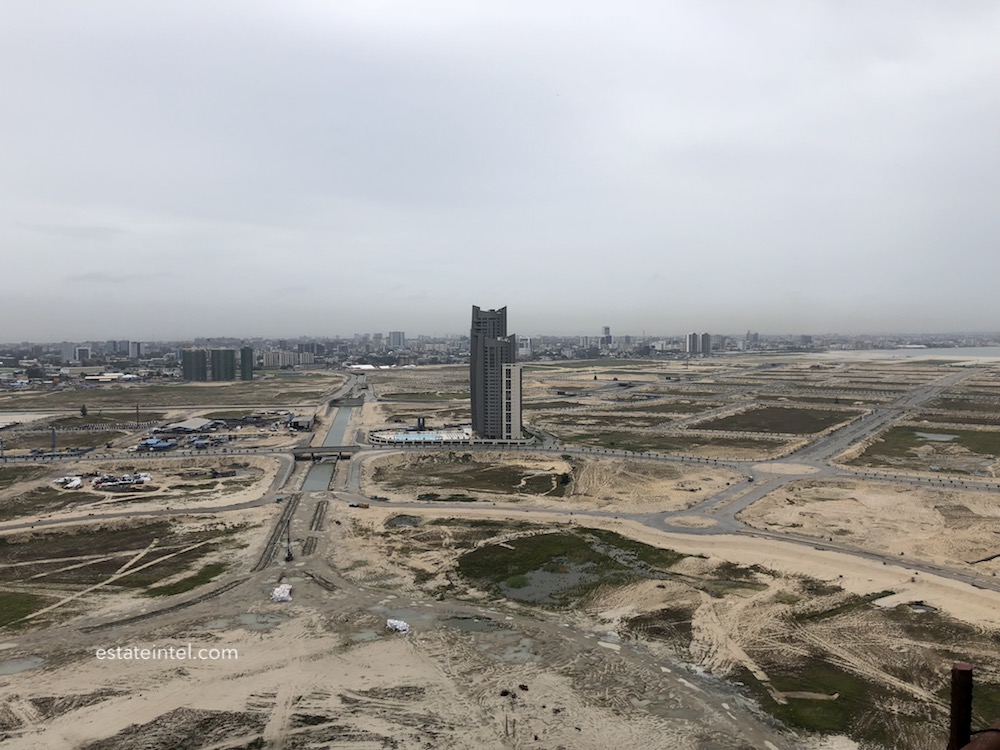Looking beyond LUC, Actions & Reactions
Dolapo Omidire . 5 years ago

Share this post
Subscribe to our newsletter
This publication is sponsored by Obafunke Akinkugbe & Co., a leading law firm founded almost 30 years ago. It is a part of our market participant contributor series. The enactment of the Land Use Charge Law (LUCL) Lagos State on the 8th of February 2018 brought anger, frustration, concern, and fear to the citizens of the State.…
This publication is sponsored by Obafunke Akinkugbe & Co., a leading law firm founded almost 30 years ago. It is a part of our market participant contributor series.
The enactment of the Land Use Charge Law (LUCL) Lagos State on the 8th of February 2018 brought anger, frustration, concern, and fear to the citizens of the State. The general feeling was that it was insensitive, morally wrong, unreasonable and beyond what the majority could afford given all the relevant economic factors and individual circumstances.
To that end, numerous articles were written in the newspapers and published on social media criticizing the decision to enact such a “punitive” law without sufficient consultation. The lawyers had their say and the Ikeja branch of the NBA held a protest. Other professionals and members of the private sector held seminars to deliberate the matter. The Government also called for a Stakeholders/Town Hall meeting where different groups represented could discuss their concerns and proffer solutions for the Government to consider.
As the criticism became more intense, it assumed a political undertone with dissenting voices from individuals, civil society organizations and pressure groups. The Governor of Lagos State Mr Akinwunmi Ambode on the 15th of March 2018 made an announcement to address the reasons why the Land Use Charge was increased and furthermore stated that there would be a 50% reduction in the assessment fee charged.
It is important to mention that since the Governor’s statement, the Lagos State House of Assembly has not enacted any Law to amend the Land Use Charge Law 2018. Many citizens are watching from the “flanks” to see what happens.
In the meantime, the current Law provides for methods of seeking redress. The first stage is to write a letter of appeal and thereafter if the appellant is not satisfied, the matter then goes before a Tribunal which is equivalent to Magistrates Court. To date, I am not aware that any case has advanced to the Tribunal stage.
The LUCL is based on the Governments’ assessment of the value of a property. S.10 explains the calculation (Land Value + Building Development Value) x Relief rate x Charge rate. The reliefs and charges then further depend on the use to which the property is being put and the applicable percentage.
In many of the assessments across the state especially in highbrow areas, the Government made some fundamental errors: the properties have been grossly over-valued and assumptions were made about the use to which the property is being put. There is a significant difference between the percentage applied to residential and commercial properties.
It appears the assessment did not take into cognizance the state of the economy and the glut in the property market. The number of empty properties in areas such as Victoria Island and Lekki is an indication of the economic inactivity.
There are other practical factors that were not taken into consideration when the value of properties was assessed. Using Apapa GRA as a case study, this is a well planned residential area. Most of the properties are on large grounds with gardens and other amenities.
The area is serviced with good schools, hospitals, businesses, restaurants and recreational facilities. However in the last 4 (four) or more years the perennial gridlock caused by the oil and gas tankers has adversely affected the value of the properties in Apapa. It is now near impossible to operate in this area; the hours spent in traffic has forced business to close and many residents have moved out of Apapa. This has resulted in depreciation in the value of the properties and lack of rental income. This dynamic was not considered.
Nevertheless, it is important to state that some progress has been made through the letters of appeal to The Commissioner for Finance, Ministry of Finance (Land Use Charge Office). In a few cases, the letters of Appeal have led to a revaluation and reassessment and further cognizance has been taken of the actual use of the property for the application of relevant reliefs. This is a welcome development but much more is needed.
Way Forward
- Valuation should not be solely conducted by the Government – A panel of Estate Surveyors and Valuers should be appointed and the assessment of properties in the different areas should be made public.
- There is no uniformity in the current system and as such the valuation can vary significantly for properties in the same area. This must be streamlined and information made accessible so that comparisons can be drawn.
- The Lagos State House of Assembly must return to the drawing board following the Governor’s announcement of a 50% reduction. Also various stakeholders’ interests should be considered and any increase must be reasonable and realistic reflecting all economic factors.
Written by:
Yetunde Fawehinmi (Mrs.)
Managing Partner
Obafunke Akinkugbe & Co.
www.obafunkeakinkugbe.com
Related News
You will find these interesting

Bisi Adedun . 3 days ago
asaba mall
Delta Mall

Bisi Adedun . 1 week ago
andmark tower
Lagos-Calabar highway

Bisi Adedun . 1 month ago
Airtel Business under its Nxtra arm recently conducted the groundbreaking for their new data centre facility in Lagos, N...
airtel nxtra
Data Centres